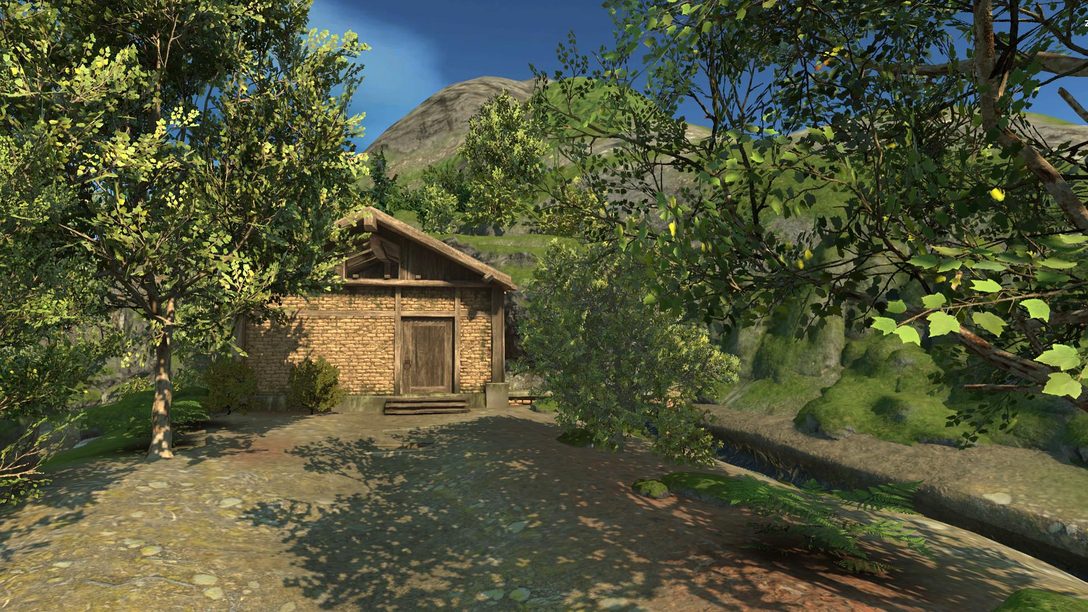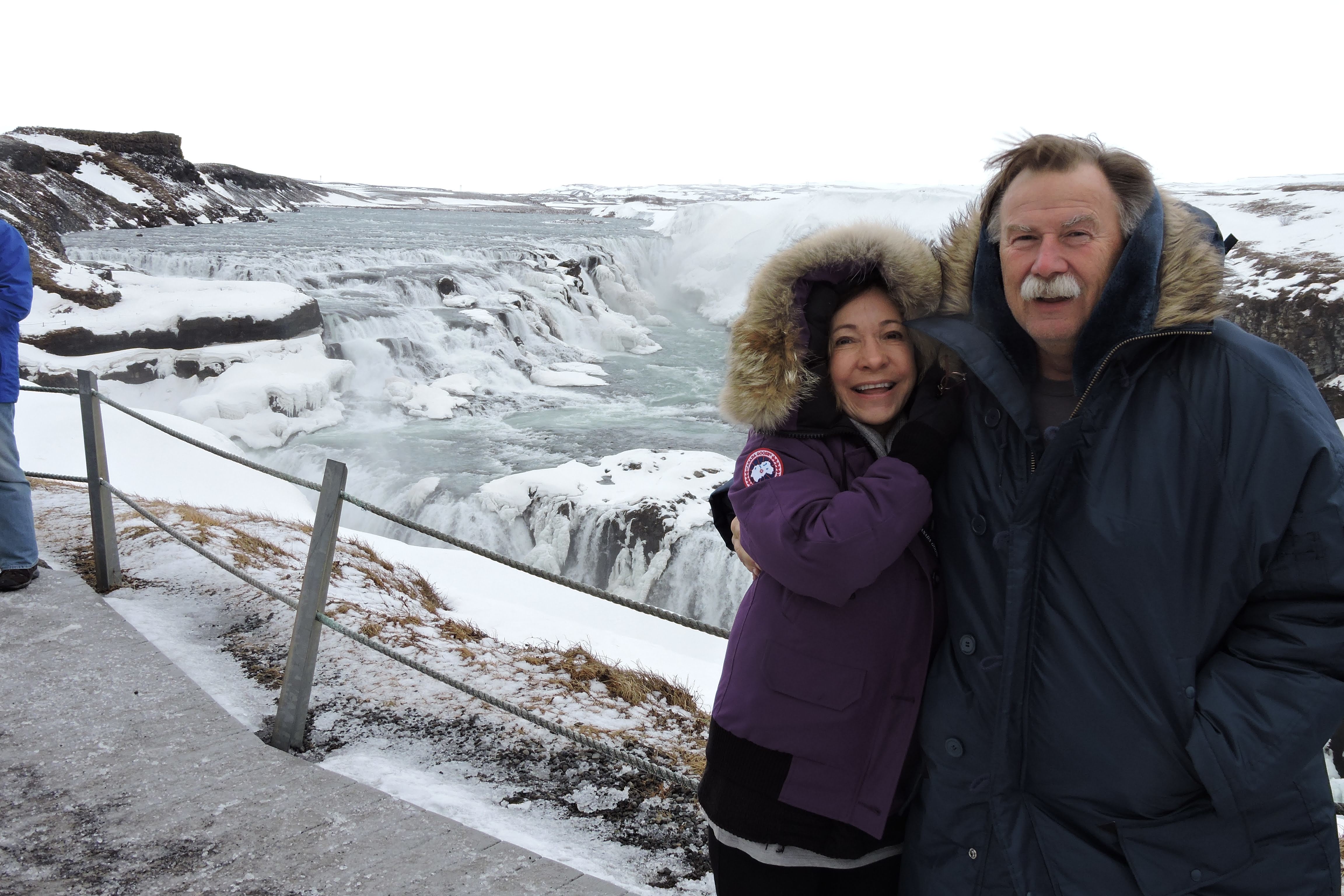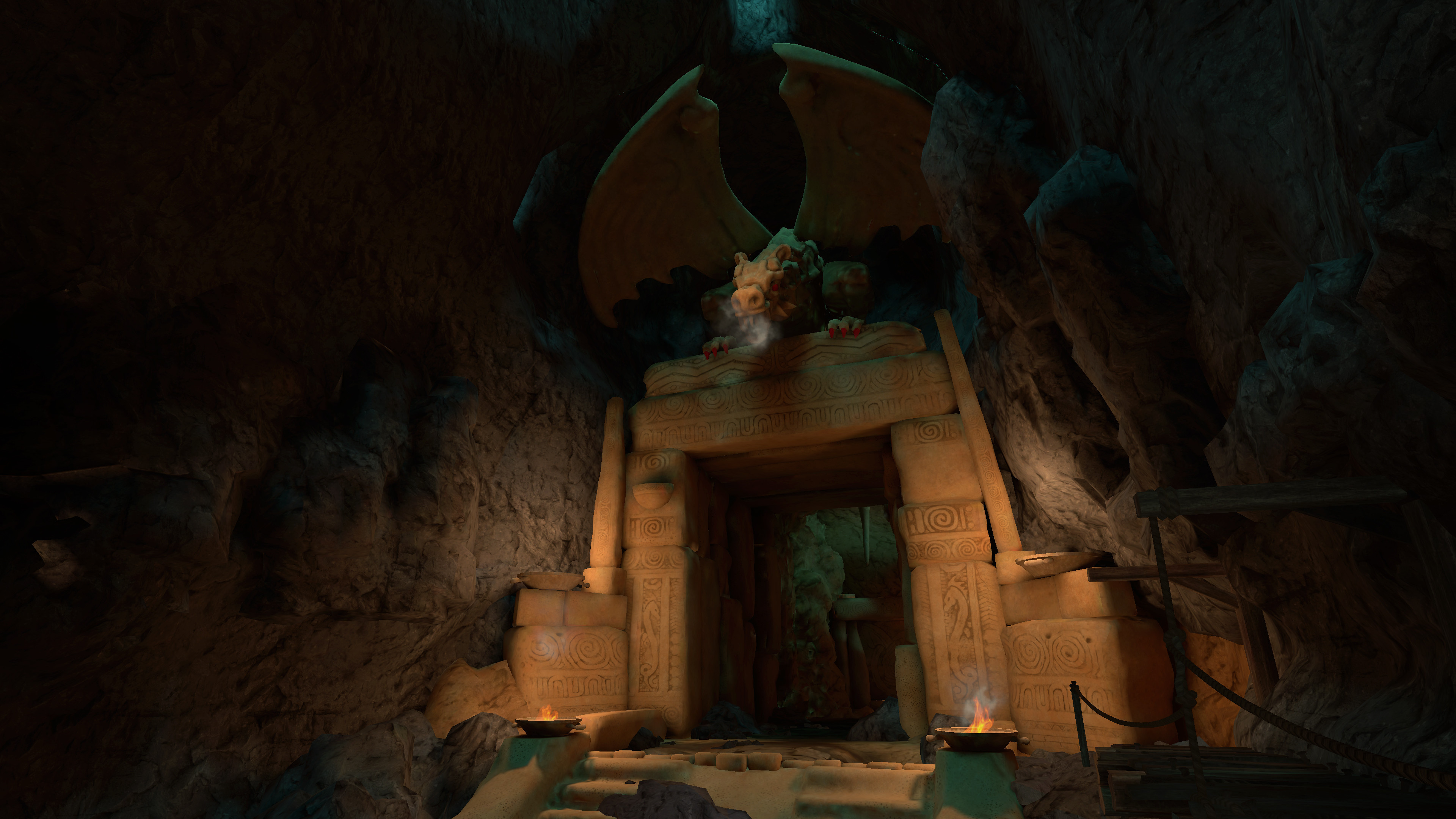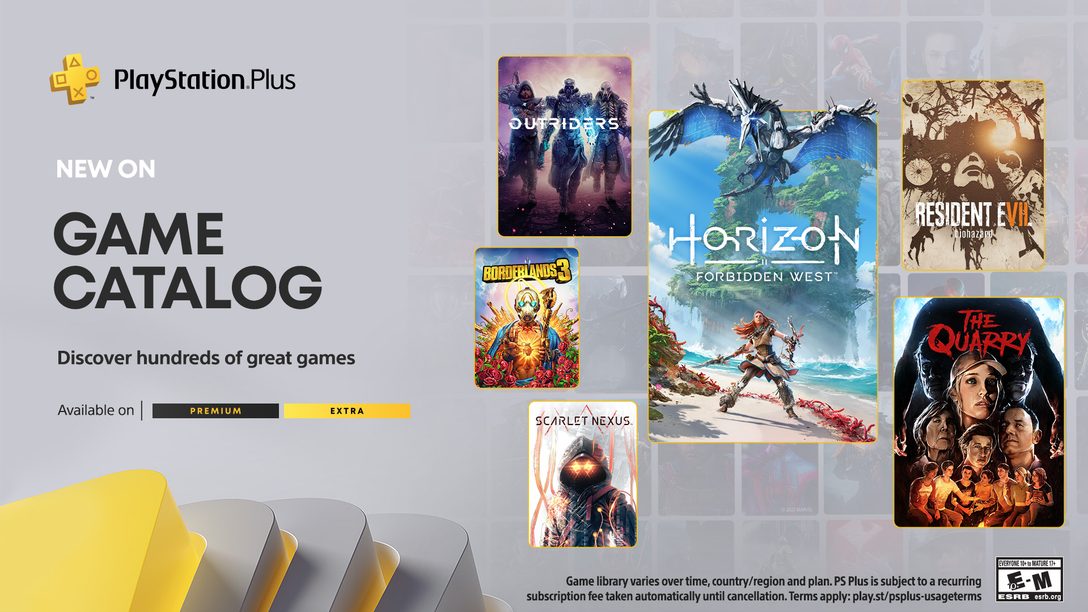
Delve into the minds of two of gaming's most storied creators.
Ken and Roberta Williams need little introduction among adventure game fans. The duo, who founded legendary developer Sierra On-Line in the earliest days of gaming, has been responsible for some of the genre’s most innovative, daring, and memorable titles. The two have been away from game development for quite some time, but they haven’t been out of the spotlight–in recent years, the pair has been honored with a Gaming Icon Award from The Game Awards, and Roberta received a Pioneer Award at the 2019 Game Developers Conference.
Now, the accomplished tag team is returning to the world of adventure games after 25 years with a new development team, Cygnus Entertainment. The team’s first outing is a full remake of a true classic: Colossal Cave. Originally a pioneering text adventure game released back in 1976 and called Colossal Cave Adventure, Colossal Cave transforms the lime-green-on-black text of the original into a visually captivating graphic adventure. The original game was a huge influence on many of the designers of the era, including Ken and Roberta, who are funding this ambitious remake. We sat down with the power duo to discuss their return to the world of game development and what players can expect from their return to game development.

This interview has been edited and condensed for brevity and clarity.
PlayStation.Blog: Roberta, can you tell us about your experiences with the original text-based Colossal Cave Adventure back in 1976 or 1977?
Roberta: I had never played a computer game ever. I think Colossal Cave may be the first or, if not, then very very close to the first computer game ever. And it certainly was the first adventure game — I mean, it basically invented the concept of an adventure game. So I played it, and I loved it, and I wanted to play more, but there weren’t really any more games quite like it at the time. So I was inspired to sit down and design my own game, which ultimately became Mystery House.
PSB: How did the original Colossal Cave Adventure influence the games you made, Roberta?
Roberta: Colossal Cave invented most of the things that many of us who do game design [rely on], especially in the adventure game genre. It developed the idea of mapping a world. Mazes, getting lost, going down a passage one way, coming in somewhere, but then getting confused.… plus levels, puzzles, and inventory objects, and creatures you can meet that might kill you. Colossal Cave put in all these elements that had never been done before, and that sort of formed the basis for adventure gaming. And maybe computer gaming. I took some of those elements for Mystery House, and I added more of a storytelling element to it. That was my process for making my first game.
With Mystery House, I had no idea where to start. I mean, I had no idea. “Who knows?” But I thought, I’ve always liked Clue, the board game. And I liked murder mysteries and detective stories and Agatha Christie books. So I thought it would be fun to do a whodunnit, that would be fun to do. But how do I turn it into a game? And I thought, well, I’m going to think about how I would play the game Clue. I put it together, write the game, and made it more story-like.
The thing I loved about [the original] Colossal Cave was the exploratory nature of it. I wanted to know where it went and how far I could get into this cave. I discovered that I loved exploring, and a cave is a perfect place to explore. So when I first started designing [Mystery House], I thought “I need to make it exploratory,” but I added the mystery story elements. I wanted to keep that sense of exploration in my games.
PSB: What made you decide to return to game development?
Roberta: So we were literally 25 years out of the business…. And we made the decision to do this with the pandemic and the lockdowns. We talked about it at the end of 2020 or the beginning of 2021. We were nicely retired here in Palm Desert, California, and sitting out in our cantina one morning having our coffee, looking out over the Coachella Valley… We were thinking about how bored we were and what we wanted to be doing.
Ken wanted to do a project and get back into programming. I suggested Colossal Cave, and I don’t know why — It just came out of my mouth. Kind of like when I first played the original game, and I didn’t know why but I just had to sit down and write a game…I had never done that. It was weird.
Wouldn’t you know, later that day, Ken told me he got done talking to Don Woods (one of the original Colossal Cave developers). I said, “what? How did you do that!?” And Ken says, “Well, I have my ways. I guess we’re doing it.” But that started us on this. And it’s been about a year and a half since.
And we started out with the idea that it would be kind of simple. We knew we wanted it to be in 3D. He had secretly been studying Unity and try to get his…. programming chops. And he hired an artist, and the two of them started working on it. I came in a little bit later… at first I said, “I don’t mind helping out. But I don’t want to get really involved.” I looked over their shoulder and gave them some advice from time to time.
Before I knew it, the word got out, apparently. [laughs] People wanted to interview me about Colossal Cave and King’s Quest and all that. You know, “what are you doing, are you back?!” And at first, I was like, “Well, I wasn’t really planning on that… [laughs]. But I don’t know, maybe I am?”
Before I knew it, I was kind of pulled into a couple of meetings with Unity, and all of a sudden it’s about me being back. And I’m not trying to be egotistical or anything. It was weird, it was like everybody expected it. And I said, “well, it looks to me like I’m not going to get out of this.” And if I was going to be a part of this, then I needed to be very serious about it.
And once I made that decision that I was going to be a part of designing Colossal Cave, that I couldn’t get out of it, here we are. Since then, I’ve jumped in with both feet, arms, head, hair, everything else… but it changed the game completely. I said to Ken, “you wanted me in, I’m in.” It’s a big project, and I’m proud of it.
PSB: What can longtime adventure game players expect from Colossal Cave?
Roberta: It is different [from our old games]. It’s not King’s Quest. First of all, it’s a first-person experience. There’s no character that you guide around. I thought about creating a player avatar creator, but I decided that I wanted to keep Colossal Cave as true to itself as it could be. Not to try to put myself into it and make it my game. It’s Will Crowther and Don Woods’ game…I am trying to bring it to modern players so that it’s fun and immersive, in the world that Will Crowther and Patricia Crowther and Don Woods had in their minds. I wanted it to come across as what I imagined it to be when I played it.
Secondly, Colossal Cave is much more pure exploring [compared to the narrative focus on my older games]. I kind of confined people to a certain extent in my older works…. You’d be in an area until you got to the next part of the story, which sends you off into the next exploratory region with new goals and other things you must do.
But in Colossal Cave, you can go wherever you want. That doesn’t mean you won’t encounter obstacles. You can figure out how to get around them, but you can also turn around and go elsewhere. You’ll find treasures, but you might not be sure what to do with them — but then someone can steal your treasure! And that starts a strategy for dealing with the thief and the treasure. There are mazes; they’re fun, quite complex, and very interesting. And there are dwarves! They’re nasty little creatures.
PSB: How has game development changed over the past 40 years?
Ken: Well, it’s gotten better and worse. There’s a lot more competition, that’s the first thing you notice. But there are the tools, too. All those years ago, we had to write our own text editor, graphics editor, animation editor, invent how to do sound and how to get color graphics. Now for this project, we can immediately be effective because the Unity engine is free, with wonderful training materials. You can go on Unity’s site and buy assets affordably. You can go to Adobe’s site and you can choose from thousands of animations.
It allows you to focus on the art and the game design. A lot of the low-level stuff is lifted off your shoulders.
PSB: Was it challenging to develop during the pandemic?
Ken: We couldn’t have done it without the emergence of working at home. We needed to assemble a team quickly when Roberta came on the project, whereas I was treating it like a hobby project to kill time during COVID. Once Roberta got involved, she said, “this has got to be Sierra quality. I need artists and programmers.” It kept growing. And suddenly, I had to assemble a team of 30 good people quickly….being able to assemble a team and not care where they live. It’s better than working in an office, in some ways.
Colossal Cave comes to PS5 starting today, with versions for PS VR2 and PS4 also under development.
















Comments are closed.
10 Comments
Loading More Comments